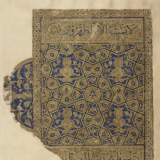History of surah The Light

Name
Surah Al-Nur was named "Surah Al-Nur" because of the emanations of the divine light that prescribes the rules, etiquette and human virtues that are a beacon of God's light on His servants and an outflow of His mercy and presence. " Allah is the Light of the heavens and the earth"
Period of Revelation
Surat Al-Nur was revealed after the Prophet’s migration, and some scholars said that it was revealed in the fifth year of the migration. The commentators said: the immigrants came to Medina, and there were poor people among them who had no money, and in the city there were prostitutes who committed fornication and hated themselves, and they are the most fertile among the inhabitants of Medina. The verse forbids marrying an adulteress to protect the believers from it. Ikrimah said that the verse was sent down about the women of the prostitutes in Mecca and Medina, and there were many of them, and among them were nine owners of banners with banners as horseshoe banners whom they knew, Umm Mahdoon, the slave of Al-Sa'ib bin Abi Al-Sa'ib Al-Makhzoumi, Umm Ghalith, the slave of Safwan Bin Umayyah, and Hayya Al-Qibtiyya, the slave of Al-Aas Bin Wael, and Maryah, the slave of Ibn Malik Bin Athla Bin Al-Sabaq, Jalalah, the slave of Suhail bin Amr, Umm Suwayd, the slave of Amr Bin Othman Al-Makhzoumi, Sharifah, the slave of Zam'a bin Al-Aswad, and the wife of Hisham bin Rabia's brothels. From the Muslims, their marriage, so God Almighty sent down this verse and forbade the believers to do so and forbade them.
Theme and topics
Surat Al-Nur is one of the civil suras that deals with legal provisions and explains issues of legislation, guidance and morality. It deals with public and private matters to which Muslims should be educated individually and collectively.
The sura is about means of preventing crime and sparing souls from the causes of temptation and seduction. Namely, explaining the etiquette of houses and asking permission for their occupants and commanding them to lower their gaze and forbidding unmarried women to adorn themselves, and asking unmarried boys and girls to marry even if they are poor, for God Almighty bestows His bounty on them, for He is the Rich, the Praiseworthy, and the prohibition of prostitution and its means.